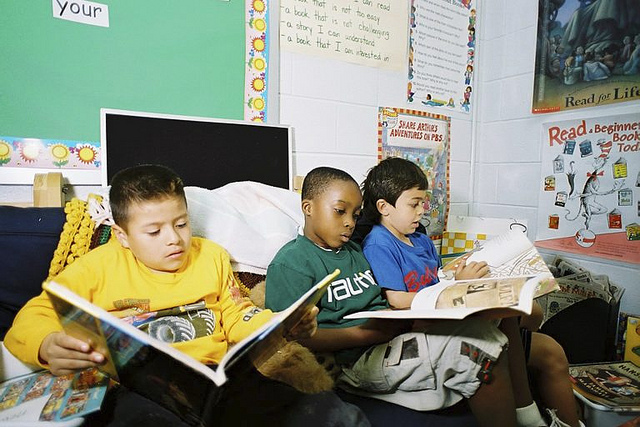6 tips to find the right TEFL school for you
The search for the right TEFL school is something every budding teacher will know all too well. With so many different academies and private institutions across the globe, and most would-be teachers having to negotiate their positions via email or Skype before arriving in their prospective destination, the process can be a testing one. Add to that horror stories of poorly run schools – the ones that don’t pay on time, the ones with no text books, the ones housed in some drab basement – and it’s easy to see how finding the right TEFL school is one of the most important aspects of hitting the classroom abroad. Here, we take a look at six top tips that any school searching teacher should bear in mind…

Check the teaching method
Most TEFL schools will follow the traditional ‘PPP’ method of teaching. This involves teachers presenting new language information, eliciting practice from students and then conducting exercises that get the class actually producing conversation or text. This is the mode of learning that most TEFL grads from online courses will be familiar with, but it’s not the only one out there! Some schools will have a direct method, or immersion methods, which not only require extra specialist training but also a skill in maintaining high levels of teacher talk time. There’s also a wildly different focus on teaching one-to-one, in small groups or large classes. These are all things you’ll need to check before signing that contract!
Check reviews of the school
Imagine you’re buying a fridge freezer for a moment, or a new TV. Reviews are there to help, offering insight into the quality of the product and its various features. Well, when it comes to finding the right TEFL school, things are no different. Google the name of your institution to see what others are saying about it online. If you can’t find any information, then that’s probably a reflection on the school’s popularity and size. All good schools will have some kind of web presence, whether it’s just a testimonials page on their own website, or a fully-fledged and rated profile on TripAdvisor.

Ask the opinion of expats
Many cities across the globe (especially ones popular with EFL teachers) will have a thriving expat community already established. Often, these have online groups on platforms like Reddit and Facebook, offering a place to ask questions and chat about life in the town. These are perfect for prospective TEFL teachers thinking of heading to a particular destination, especially if you’re searching for information on a school or EFL institution. You might find a fellow expat who’s actually worked and experienced your school, or even someone currently working there, making this a perfect opportunity to learn about the ins and outs of your classroom, the quality of the equipment, the character of the students and staff – the list goes on!
Contact the head of studies
It’s always a good idea to get in touch with the person in charge at your prospective school. This is your chance to ask all the important questions, about pay, hours of work, and details about what the school’s philosophy and character are. The point is that heads of studies are the people who pull the strings, offering would-be teachers a much more detailed insight into where and what and who you’ll be teaching than perhaps other members of staff can, let alone simple online information. It’s always okay to contact heads directly. Their email addresses are usually listed freely online.

Check where the school is
Location is an important factor for TEFLers. In cities like Hong Kong and Busan, Seoul and Sao Paolo, the neighborhood you’re going to be heading to work in each morning can make a huge difference. Not only will it place limitations on the place you can live (some metropolises are so large that you’ll want to limit that daily commute), but it will also determine your experience of a destination, and – crucially – teaching. Be sure to check out the character of the area and district the school’s in. What sort of people live there? Who will you be teaching? Are there places to settle down for lunch? Does it have good enough transport connections to the rest of town?
Ask about the students
One of the biggest things that affects the character of every TEFL school across the globe is the sort of people you’ll be teaching. There’s a huge difference between teaching classes of children and teaching classes of adults. Remember: kids are usually made to attend English lessons by law or parents, while adults have typically made a choice to be there. That often means missed homework assignments with one group and dedicated learners with the other. That said, kids can make EFL teaching energetic, funny and enjoyable for some teachers, in a way that adult learning can’t. You’ll need to think about who you want to teach and then call your prospective school ahead of arriving to find out if their student demographic fits.
Are you ready to hit the classroom? Perhaps you’re searching for a TEFL school that suits you? Or, maybe you’ve tips to add to the list? Feel free to leave them in the comments below and be sure to check out myTEFL’s job placement service.

